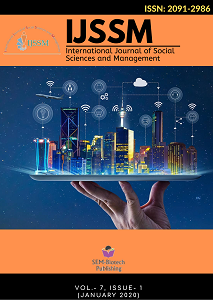The Presentation of Academic Self in The Digital Age: The Role of Electronic Databases
DOI:
https://doi.org/10.3126/ijssm.v7i1.27405Keywords:
online databases, social networking platforms, academic profileAbstract
A growing number of online electronic resources present academic work. We are not focusing here on specialised electronic databases that store bibliographic research data, such as Medline, PubMed, ASSIA, ERIC, JSTOR, but databases or social networking websites /platforms for academics/researchers that profile research, academic and professional activities, such as SCOPUS, WoS (Web of Science), Academia.edu, KUDOS, ORCiD, ResearchGate, LinkedIn, Google-Scholar and Mendeley. We discuss databases or platforms can promote the profile of an individual academic, highlighting their research interests, grants and publications.
These databases are good outlets for Early Career Researchers (ECRs) to build, improve and promote their public profile. However, the level of efforts requires to open an account or to maintain these databases regularly can be a daunting task for some scholars. This paper outlines some of these key databases and their functions and reflects on advantages and disadvantages of engaging with the most popular ones. We remind the reader that many of these databases require academics’ attention and input, and thus create more work.
Int. J. Soc. Sc. Manage. Vol. 7, Issue-1: 38-41
Downloads
Downloads
Published
How to Cite
Issue
Section
License
This license enables reusers to distribute, remix, adapt, and build upon the material in any medium or format for noncommercial purposes only, and only so long as attribution is given to the creator.




